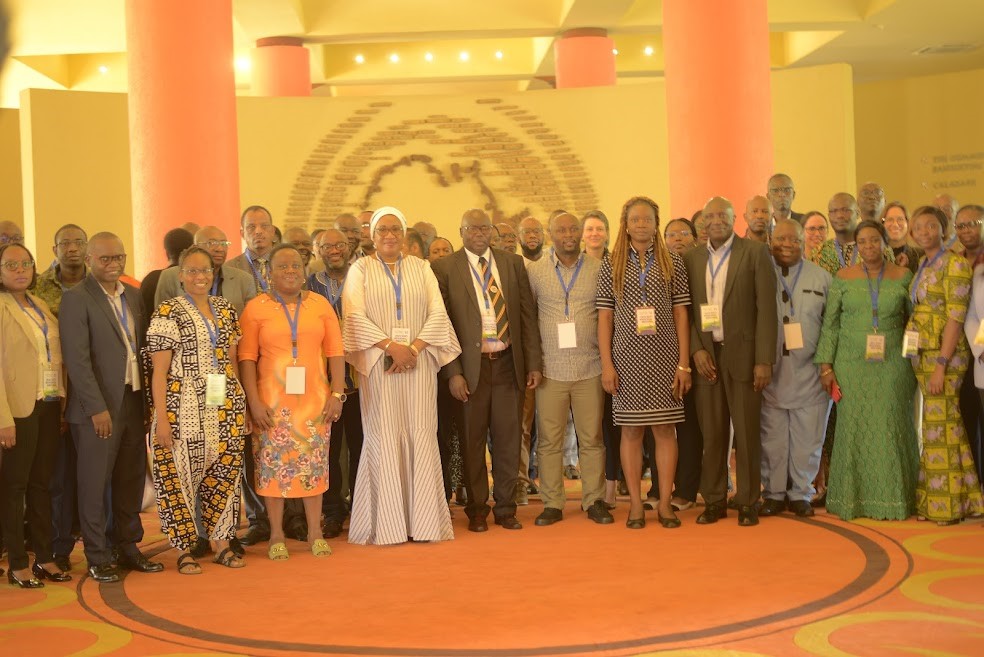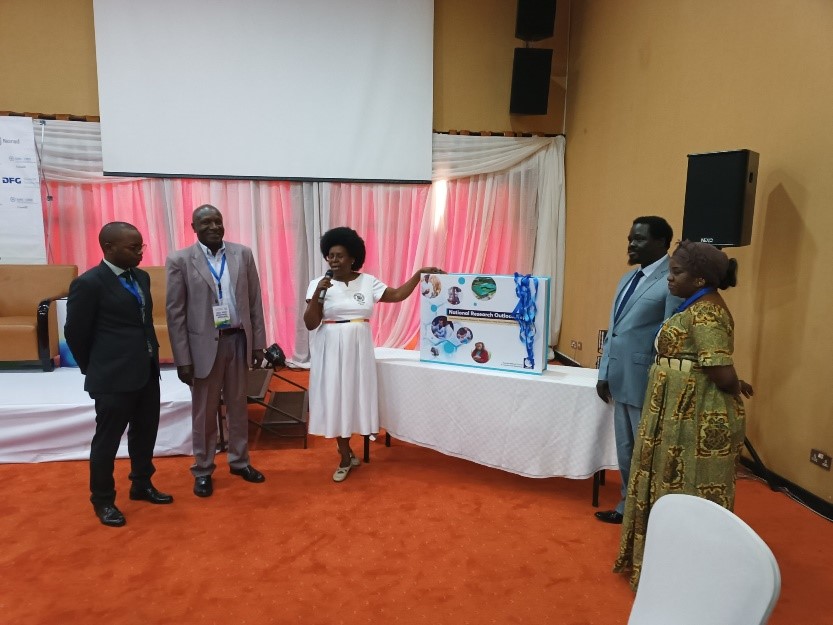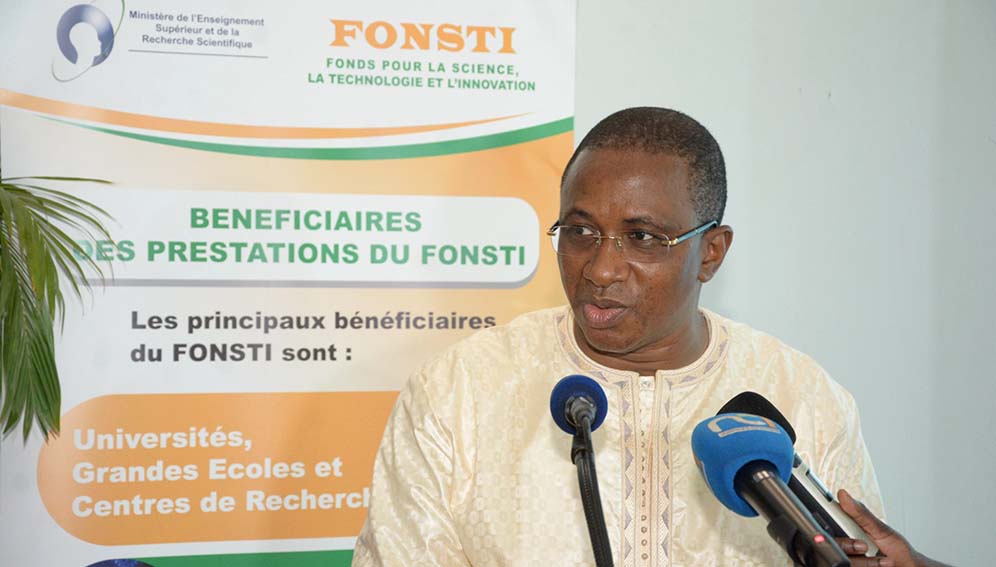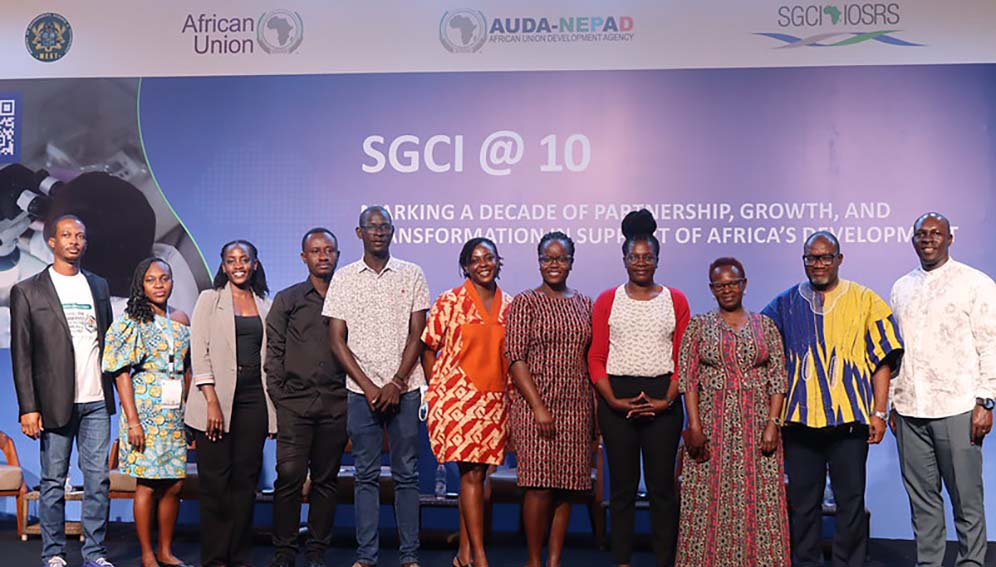SGCI News
The Uganda National Council for Science and Technology (UNCST) hosted the 2023 Science Granting Councils Initiative in sub-Saharan Africa (SGCI) Regional Meeting during 19-23 June at Munyonyo, Uganda under the…

The Uganda National Council for Science and Technology (UNCST) hosted the 2023 Science Granting Councils Initiative in sub-Saharan Africa (SGCI) Regional Meeting during 19-23 June at Munyonyo, Uganda under the theme “The role of Science Granting Councils in Africa’s development”.
The meeting provided an opportunity for sharing of achievements, lessons and good practices among the science granting councils from 17 African countries, SGCI funders including the National Research Foundation of South Africa, the International Development Research Centre (IDRC), Norwegian Agency for Development Cooperation (Norad) and the Foreign, Commonwealth & Development Office (FCDO), and Collaborating Technical Agencies partnering with the SGCI to implement capacity strengthening activities. In addition, the meeting also brought together science system actors from Uganda and the East African region.
In her opening remarks, Dr Dorothy Ngila of the NRF highlighted the powerful impact of the SGCI in multilateral partnerships and reach beyond the activities of the SGCI and encouraged Councils to find innovative ways of better demonstrating and leveraging the different partnerships that the SGCI has made possible. “There are many bilateral and multilateral partnerships that are being conceptualised as the SGCI continues to become visible beyond the continent and this meeting will assist us in how to better leverage these opportunities and how to make them available for our research performing institutions.” In aligning with the theme of the meeting, the UNCST launched the Uganda National Research Outlook Report 2023, which was titled “Unlocking Uganda’s Research Potential for Long-Term Development and Prosperity” during this week. The report was launched by Uganda’s Minister of Science and Technology, Dr Monica Musenero who emphasised the need for Councils to improve and integrate their processes and systems in order to support research that translates into development for the benefit of societies.
The meeting provided an opportunity for SGCI Collaborating Technical Agencies to explore synergies and prospects of collaboration across all the SGCI’s thematic areas.

Working together with the Councils they were able to co-design tailored capacity strengthening plans on research and innovation management; strategic communications, uptake of knowledge outputs; and developing frameworks for public-private partnerships based on the councils’ individual needs. In addition, there was an opportunity for councils to discuss governance, to shape the Africa-Japan Long Term Framework to support the multilateral research partnership that involves Africa and Japan, and that has been incubated by the SGCI.
Read more on https://insideeducation.co.za/uganda-targets-tvets-to-deliver-digital-skills-uj-prof-calls-for-monitoring/ and https://www.newvision.co.ug/category/news/uganda-africa-urged-to-set-own-research-agend-163091.
Related News
The FONSTI mag: A new era for science storytelling in Côte d’Ivoire
Effective research communication is central to ensuring that science informs policy, reaches communities, and inspires the next generation of scientists. Science Granting Councils Initiative (SGCI), members are increasingly experimenting with creative, people-centred ways of making research more visible, accessible, and relevant beyond academic circles and…
Advancing STI systems through Kenya’s silicon savannah
The National Research Fund (NRF) leadership, last week, joined the principal secretary of the State Department for Science, Research and Innovation, Haukat Abdulrazak, on a strategic visit to Konza Technopolis, Kenya’s flagship innovation ecosystem and a cornerstone of the country’s ambition to become a knowledge-based…
SGCI 2026: Strengthening science granting councils for leadership
As African countries confront increasingly complex development challenges ranging from climate change and health security to food systems, digital transformation, and economic diversification, the need for strong, responsive national science funding institutions has never been more urgent. Science granting councils sit at the centre of…
SGCI funded projects
Rwanda’s integrated approach to sustainable agriculture and nutrition
Project Titles & Institution Areas of Research Number of Projects being funded Project Duration Grant Amount In-Kind Distribution Council Collaboration with other councils




